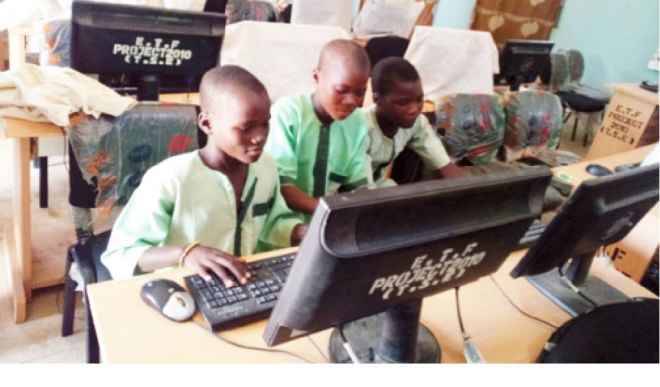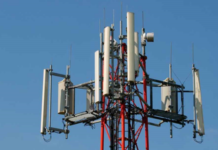When Tech Giants Provide Digital Literacy and Skills in Nigeria
By Zeenat O. Sambo
TECHDIGEST – Recently, the Minister of Communication and Digital Economy, Prof. Isa Pantami announced that the federal government had signed partnership agreements with tech giants, Huawei and Cisco to establish 300 academies in Nigeria and to train 30,000 citizens in advanced Information Communication Technology (ICT).
This step again has underlined the scope of the ministry to promote the acquisition of digital literacy and skills among youth as a strategy to push its digital economy agenda through partnerships with various global tech companies.
Speaking at the Cisco Safari International Conference 2022 organised by National Information Technology Development Agency (NITDA) in collaboration with Cisco, the minister disclosed the agency’s partnership with Microsoft to train about 5 million people in ICT, particularly in the area of Artificial Intelligence (AI).
While discussing the theme, ‘Digital Skills in the Fourth Industrial Revolution, the Impact on National Development,’ Pantami noted that digital skills and the 4th Industrial Revolution (4IR) were highlighted as pillars of the country’s National Digital Economy Policy and Strategy (NDEPS).
In actualizing NDEPS for Digital Nigeria 2020 – 2030 which was unveiled by President Muhammadu Buhari on the 28th of November 2019, the conference has enabled the capturing of the agenda of developing digital skills and literacy and digital society and as a stronghold for emerging technologies.
The signing of these agreements comes at a good time when Nigerian students are affected by the protracted Academic Staff Union of Universities (ASUU) strike, so the Huawei and Cisco digital skill programmes will provide them a new pathway to participate in the global business arena.
ASUU embarked on strike in February 2022, demanding that the government invest in the provision of university infrastructure and pay its members’ salaries through the University Transparency and Accountability Solution (UTAS) payment system developed by Nigerians.
With the strike dragging into five months, many students have been left stranded at home without vocational skills and at the risk of negative influences with disastrous consequences.
With many courses in Nigerian universities becoming less marketable in the work world and students lacking employable skills when seeking opportunities, the acquisition of digital skills is the right direction for the achievement of digital inclusion. For personal growth and access to job opportunities across the local and international tech ecosystems, students need to migrate to online study platforms and pursue their educational aspirations.
Cisco Systems, Inc., commonly known as Cisco, is an American multinational technology conglomerate founded in 1984. Cisco develops, manufactures, and sells networking hardware, software, telecommunications equipment, and other high-technology services and products.
Known for its expertise in specific tech markets such as the Internet of Things (IoT), domain security, videoconferencing, and energy management, Cisco ranks 63rd on the Fortune 100 with $49 billion in revenue and is a brand outfit with a global reputation in skill development and training.
Read Also:
Similarly, Huawei as a leading worldwide provider of ICT infrastructure is by the organization’s Platform and Ecosystem development technique, and its new ICT infrastructure highlighting “Cloud-Pipe-Device” synergy.
With its driving ability advancement system and certification guidelines, Huawei Certification encompasses 3 categories: ICT Infrastructure Certification, Platform and Service Certification, and ICT Vertical Certification.
As part of its focus on growing new ICT experts in the digital era and building a healthy ICT talent ecosystem, Huawei Certification has over time gained a reputation with its “CloudCampus” digital network which has been implemented at campuses the world over to bring academics and institutions closer to a safer faster network operations that save time, resources and investments.
According to Tolly Group research, Huawei platform offers intelligent operations and management (O&M) and provides more AI-enabled, and ensures optimal service and user experience with automated network management across the entire lifecycle, including planning, deployment, maintenance, and optimization.
Courses offered include IoT, artificial intelligence, network energy, finance, enterprise communication, and many other digital skills to engage Nigerian youths during the ASUU strike.
Others include medical and health, poverty reduction and agricultural development, trade promotion, investment promotion, digital innovation, green development, capacity building, cultural and people-to-people exchange, and peace and security.
It will be recalled that earlier in the year the federal government and Huawei had officially begun the implementation of the Memorandum of Understanding (MoU) to provide ICT skills to young people. The MoU inked the establishment of two core ICT projects in Nigeria: the Huawei ICT Academy Project and the Huawei ICT Talent Cultivation Project for the development of the digital economy in Nigeria.
It is estimated that this partnership will lead to the development of over 300 ICT institutes at Nigeria’s top universities, polytechnics, and colleges of education. At least 10,000 university students from universities will be trained each year with a total of 30,000 students in three years. This would include training, competitions, and other activities incidental to the operation of the ICT Academy.
Under the MoU, Huawei , Microsoft, and Cisco are expected to make available their technology and trainers to help curb the rate of unemployment in Nigeria by providing experience, opportunities, jobs, and ICT certifications to students each year to increase their market flow.
With the MoU targeting 100,000 Nigerians, Microsoft training about 5 million youth, and Cisco training about 30,000 Nigerians, it is believed that digital literacy and skills can be transformed into digital economic growth soon.
Amongst other empowering factors, the federal government initiative will provide an enabling environment for international companies to invest and do business in Nigeria and help multiply the number of indigenous tech-enabled innovative enterprises with digital skills to drive Nigeria’s digital economy.
For sustainability of these digital academies and the successful development of indigenous market-creating, innovation-driven enterprises, NITDA should gear up the engagement of tertiary institutions, relevant public organisations, and tech ecosystem stakeholders to help integrate creative students into the tech world to enhance Nigeria’s economic prosperity.
Zeenat O. Sambo



















